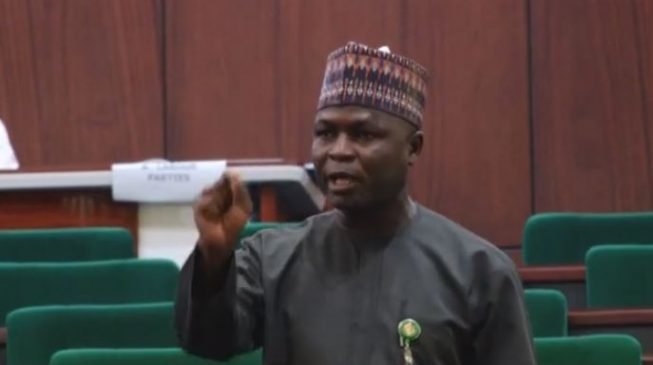
Boko Haram terrorists attacked the Government Girls Secondary School in Chibok and kidnapped 276 girls on April 14, 2014.
57 of the schoolgirls escaped immediately after jumping from the trucks on which they were being transported. Also, others have been rescued by the military.
However, Jaha, while commending the Federal Government for recovering some of the girls noted that 87 are yet to regain their freedom.
He spoke at an event organised in Abuja on Saturday to showcase the Chibok culture to children and youths of the community not privileged to witness such following the activities of the terrorists.
Jaha said, “I commend efforts being made to ensure peace returns to Chibok. We also have to commend the FG for recovering some of the Chibok girls but we still have 87 in captivity. We are happy with the way and manner peace has returned to some parts of Chibok but we are begging the FG to provide security where they are not present.”
He described the community as relatively safe, adding that some communities are still being occupied by the terrorists.
Jaha said, “Chibok is relatively safe now. Relatively safe in the sense that we still have areas that are still under the occupation of Boko Haram and we equally have places where we still have insurgents attacking some communities. How will I agree that it is safe when some of my constituents are still in IDP camps and some are taking refuge in Abuja, Lagos, Kano, and Porth Harcourt among others? For me to say it is absolutely safe for people to go back I don’t think I am fair to my people. ”
Speaking, the Abuja Chairman, the Kibaku (Chibok) Area Development Association, Nkeki Mutah said the event was organised to ensure youths and children staying away from home as a result of terrorism are aware of their culture and traditions.
He said, ” This event is not organized just for mere festivity, but the main purpose is to keep our children particularly the youths who have been driven away from our ancestral home by the insurgence for almost one and half decades, abreast of our culture and tradition and to inform them of where they come from.
“Before the resurgence of the violent atrocity, each kibaku family outside the home usually celebrated every festival whether religious or traditional at home together with the children. So, despite being away, they should never forget home.”





